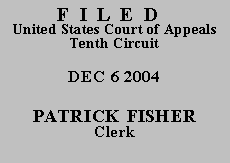

| JIMMY DEAN MEINHARD, |
|
| v. | |
| CLINT FRIEL, Warden, |
"A certificate of appealability may issue . . . only if the applicant has made a substantial showing of the denial of a constitutional right." 28 U.S.C. § 2253(c)(2). "Where a district court has rejected the constitutional claims on the merits," the prisoner "must demonstrate that reasonable jurists would find the district court's assessment of the constitutional claims debatable or wrong." Slack v. McDaniel, 529 U.S. 473, 484 (2000). We recognize that in determining whether to issue a COA, a "full consideration of the factual or legal bases adduced in support of the claims" is not required. Miller-El v. Cockrell, 537 U.S. 322, 336 (2003). Instead, the decision must be based on "an overview of the claims in the habeas petition and a general assessment of the merits." Id.
The Utah trial court found that the allegedly lost or destroyed hair and fiber evidence had never existed. Utah v. Meinhard, 2001 WL 1243357 at *1 (Utah App. Oct. 18, 2001). The state court of appeals held that "the evidence supports the trial court's finding that no evidence was lost." Id. Our review of a state court's findings of fact in a habeas proceeding is governed by 28 U.S.C. § 2254(e)(1), which states:
In a proceeding instituted by an application for a writ of habeas corpus by a person in custody pursuant to the judgment of a State court, a determination of a factual issue made by a State court shall be presumed to be correct. The applicant shall have the burden of rebutting the presumption of correctness by clear and convincing evidence.
The district court, applying the proper standard of review, concluded that Applicant failed to rebut the presumption, noting that he "has suggested nothing whatsoever in the evidence that would put in question the trial court's reasoned consideration of the testimony it heard." Dist. Ct. Op. at 10-11. Applicant has failed again in this regard in his brief to this court.
No jurist of reason can disagree with the district court's conclusion that Applicant failed to make a substantial showing of a violation of a constitutional right. Consequently, we DENY the application for a COA and DISMISS the appeal.
ENTERED FOR THE COURT
Harris L Hartz
Circuit Judge